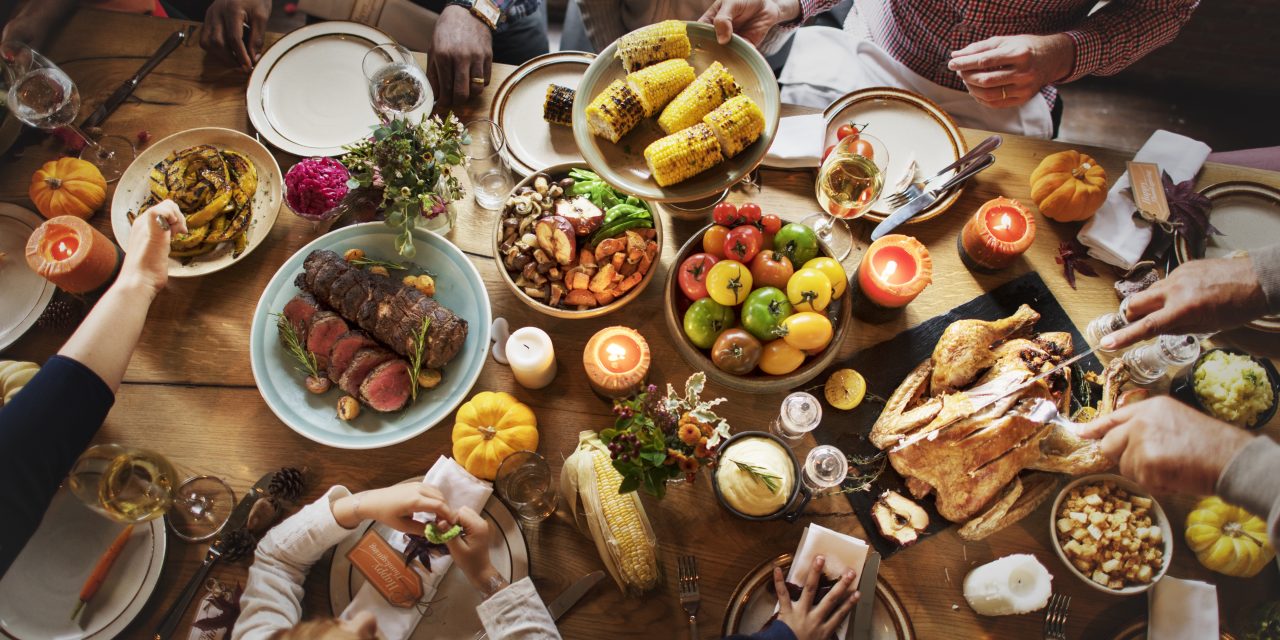Each year, we gather around dinner tables at Thanksgiving with people we love—but don’t necessarily agree with—when it comes to politics and the direction of the country.
The political discourse of the past several years has left many people feeling that their values are under attack. They disagree with or have lost faith in our political leaders, and they are angry, hurt, and disillusioned.
In fact, people from both political parties report feeling like a “stranger in their own country.”
For some, it’s politics. But for others, this sense of alienation is a result of a changing country. There are huge demographic shifts taking place in the United States, due in part to the large number of newcomers who have arrived here in search of safety, protection, and opportunity.
In addition to changing demographics, we are experiencing a changing economy and labor market that increasingly relies on technology for growth, from everything from craft beer to legal cannabis for leisure. This is a far cry from the America my parents grew up in.
However, my parents adjusted and adapted, just as we all will, as long as we hold onto our democratic ideals that keep us in dialogue with those we disagree with on politics and policy.
This is proving challenging in today’s society, where we can easily tune out and turn off those we disagree with. One can simply change the channel, “unfriend,” or “cancel” those whose views and values do not align with ours. This might relieve the immediate discomfort associated with disagreement, but it does nothing to build mutual understanding or the problem-solving mettle our nation so desperately needs.
Yet, not all is lost. While many of us have retreated to our safe spaces, it turns out there are many people that want to “talk turkey” about America’s most pressing issues (including immigration).
Across the nation, groups are hosting hundreds of conversations to bring people together across difference.
One such project, Looking for America, invites people from different backgrounds and political persuasions to enjoy and bond over art before sitting down for a dinner conversation where guests discuss “What it means to be an American.” This provides a safe and productive way into a deeper conversation about politics and policy. Indeed, people will wrestle with the tough stuff, but they want to do it civilly and safely.
If you’re now convinced that civil dialogue is the way to go, and you want to try it over the Thanksgiving table this year, here are some basic tips.
- Start the dinner discussing things you have agreement on—sports, kids, how much you love turkey or Dolly Parton—whatever brings you together in agreement. You want people to feel like they have some values and interests in common first. Perhaps even set the table or cook together.
- Then when you begin to approach the tougher topics, make a commitment to listen and understand and ask for the same in return. Real listening means focusing in to hear what the other person is saying—to understand where their views and positions come from. Keep in mind, that if you are formulating your rebuttal as you listen, you are not truly hearing the other person.
- Use the “5 whys” to dig deeper. Ask 5 why/how questions in order to get beneath the surface of what the other person is saying. This will help you deepen your understanding of their point of view and allow you to find nuance and new ways to talk about the trickier issues.
- Bring stories, information, and new ideas into the conversation that the other person may not have been exposed to and be open to hearing new information from them. It’s easiest to receive information that is new or that may conflict with our existing views if you trust and feel validated by the person sharing it.
Remember that mutual understanding is not the final destination, justice is. But until we can build trust and understanding with our political opponents, we will not be able to discuss how we get to a more just and fair society.
Hope for the best as you head into your Thanksgiving dinner discussion, but as we’ve cautioned before, if things get too heated, take a break and have another piece of pie. It’s hard to argue with food in your mouth.
For more tips on how to have better conversations, visit the Better Arguments Project, Better Angels, and the National Conversations Project.
FILED UNDER: public conversations; difficult conversations, Talking Turkey


